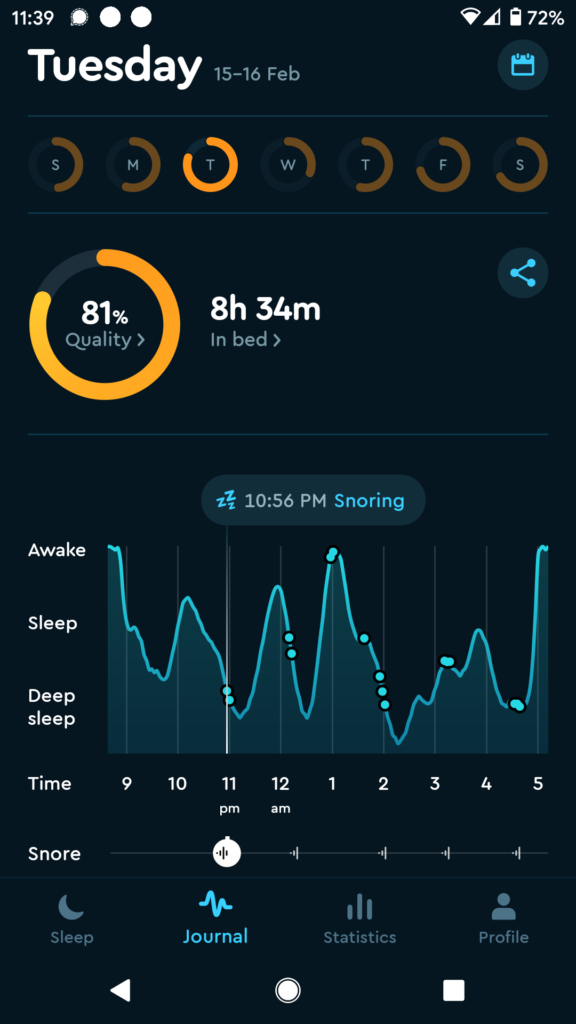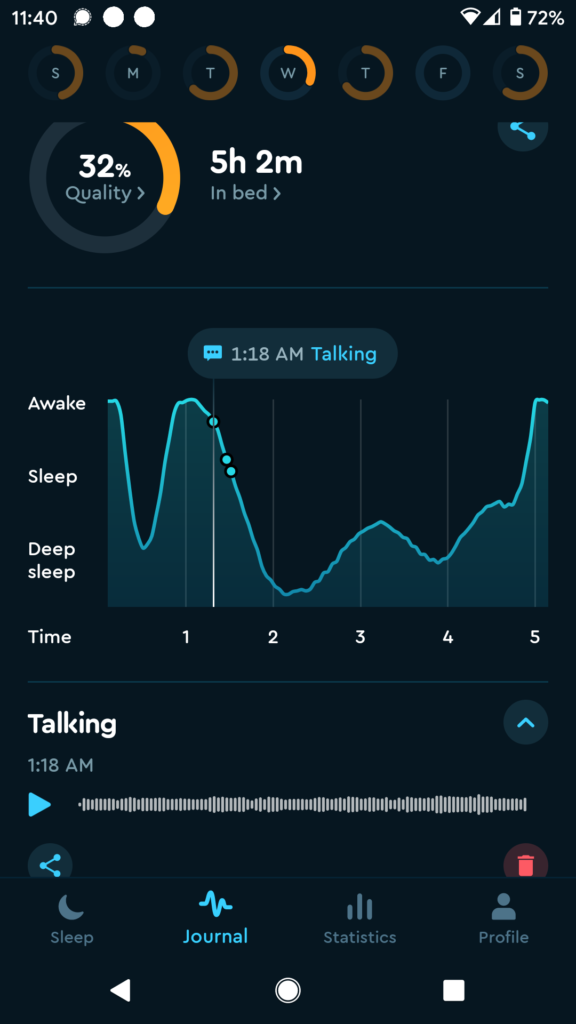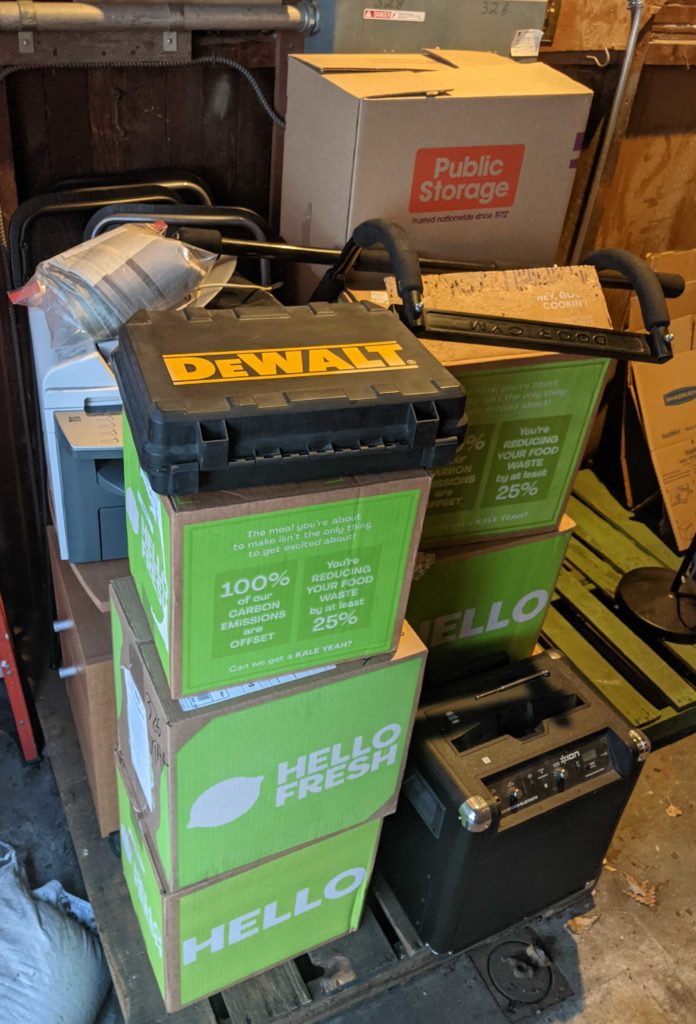I can’t remember the last time I had a good night’s sleep. It doesn’t seem to matter when I go to bed, when I wake up, and whether or not I use an alarm; I always awaken feeling groggy and struggle to start my day. I limit myself to one cup of coffee in the morning, my diet is fairly healthy, and I get a decent amount of exercise, but to no avail. I even tried participating in a sleep study once, but I was so uncomfortable from having electrodes stuck all over my body that I maybe slept for 30 minutes the entire night.
At this point in my life, I’d be more surprised if I woke up feeling refreshed than if Bigfoot came crashing through my front door riding on the back of a unicorn.
Despite this, about a year ago, I thought I could train myself to become a morning person. My motivation: I got a job in which my typical workday began between 5 and 5:30 a.m.
I’m still not used to it. I struggled for months to get to bed early enough to even have a shot at around 7-8 hours of sleep. At one point, I found the discipline to go to bed by 8 p.m., fall asleep within about 30 minutes, and wake up at 4:30 a.m. It never got easier, and after about two weeks, I got sick and needed extra rest to recover. I never managed to get back on track.
This month, I decided to try and get to the bottom of the issue. I did some research on sleep monitoring apps and downloaded one called Sleep Cycle.
The basic premise of the app is that we sleep in cycles, sinking into deep sleep and returning to light sleep approximately every 90 minutes. If we are awakened during deep sleep, we will feel less rested than if we’re awakened during light sleep. This means it’s best to wake up at the end of one of the 90-minute cycles. For example, in theory, 7 1/2 hours of sleep is better than 8 hours of sleep because 7 1/2 hours is five 90-minute cycles while 8 hours means you’re interrupting your return to deep sleep. Unfortunately, the duration of sleep cycles varies from person to person, and it’s hard to control exactly when you fall asleep, so it’s very difficult to know the optimal time to set your alarm to.
The Sleep Cycle app tries to eliminate the guesswork. It includes an alarm function, but after you set your wake-up time, the app will try to wake you as close to that time as it can (without going beyond) when you’re in light sleep. If you want to get up by 5 a.m. and the app thinks you’ve ended a sleep cycle at 4:40 a.m., it will wake you at 4:40.
This next part may seem like another sign that robots are taking over the world, but I was desperate. The way the app monitors your sleep cycle is through your phone’s microphone. You leave the phone charging near your head with the microphone pointing towards you. It listens for sound patterns to indicate when you’re asleep, and then it begins taking measurements. When you wake up the next morning, you’ll see a graph of how you slept as well as various other data. It also records audio if you snore or talk in your sleep. I actually paid for the premium version of the app so it could use these invasive spy tactics.
Here’s what an (almost) ideal night looked like:

According to the graph, I started falling asleep right around 9 p.m. and woke up just before 5 a.m. In between, I had five cycles where I achieved deep sleep. Granted, it looks like I may have woken up briefly around 1 a.m., but if that’s true, it didn’t last long.
What really surprised me was that the app caught me snoring that night, not once, but 18 times! I had been convinced that I only snore on rare occasions, but apparently, it happens almost every night. It’s not an aggressive snore, but it’s still troubling.
Nonetheless, it felt like an achievement to sleep for almost 8 solid hours. The best part was that I actually felt a little more rested than usual when I woke up.
Too bad that was the best night’s sleep I had all month. A more typical night looked something like this:

Here you can see I didn’t get into bed until after midnight and still had to get up around 5 a.m. Also, where the app claims I was talking, I was actually watching a video on my phone because I had woken up and couldn’t get back to sleep. 4 1/2 hours of interrupted sleep can’t be good.
Sadly, this was closer to the norm–most nights I went to sleep after 11 p.m. and woke up by 5 a.m. I did, however, find that waking up during the light end of the cycle seemed to help. Even on 5 hours of sleep, I usually felt lucid enough to run an early meeting or two. But most days, I couldn’t make it to lunchtime before the fog rolled back into my brain and I had to take a walk or a nap.
I’d love to say I had a breakthrough this past month and solved my sleep problem, but I haven’t. Lack of quality sleep continues to impede my quality of life.
But thanks to this app, I now have new insights and new hope. I think I’m on board with the idea of an adaptive alarm clock. I seem to feel better, at least temporarily, if I wake up while in light sleep. I also have proof that I snore, which also affects sleep quality and is worth investigating. I’m starting to believe that with the right habits and treatment, I might one day achieve the mythical “good night’s sleep.”
Of course, it would help if I didn’t stay up late trying to wrap up this post the night of my publication deadline.
There’s always tomorrow . . .
